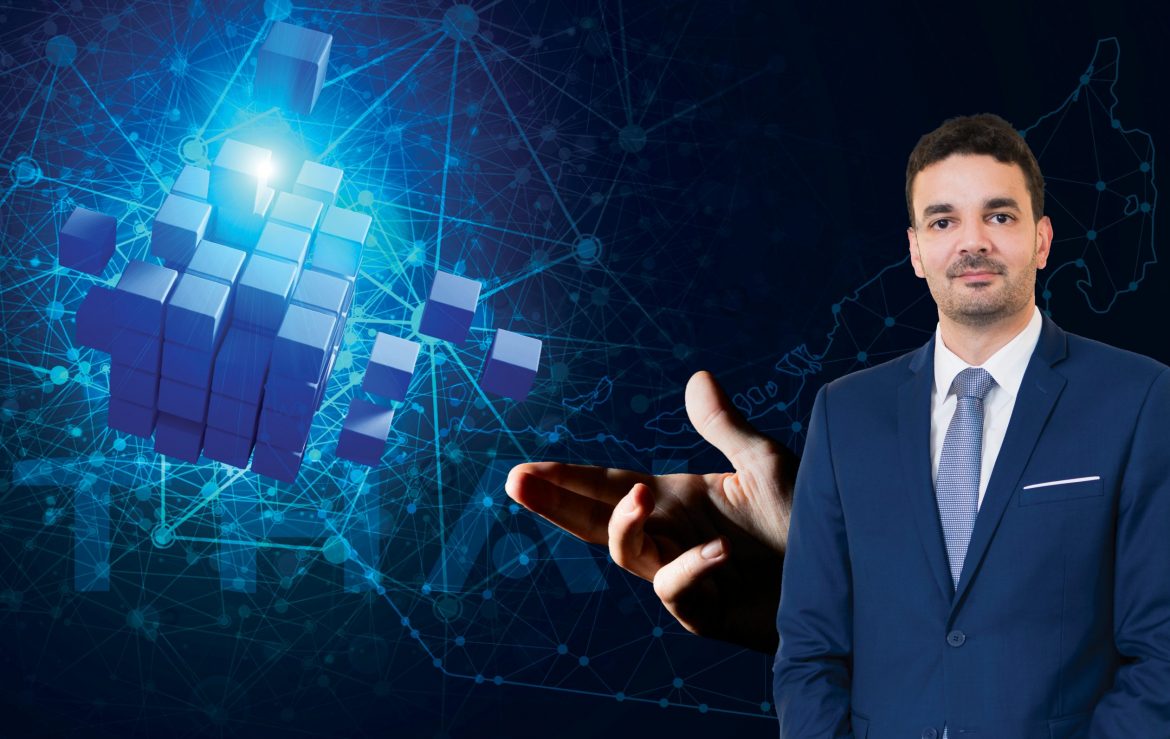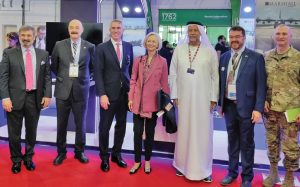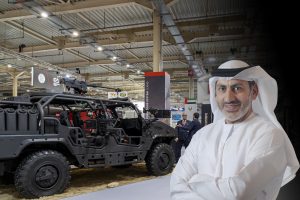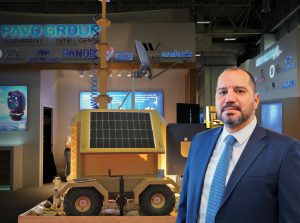«THALES» is one of the most important and largest global companies working in the field of digital innovations and deep technology – such as communication, big data, artificial intelligence, electronic security, and quantitative technologies, and provides solutions, services and products that support the business sector, institutions and governments in the aviation, space, transportation, digital identity, security and defense sectors. Al-Jundi Journal had an interview with Bernard Roux, CEO of «Thales», where he spoke to Al Jundi about the company’s activities in the United Arab Emirates and the services it provides to the defense sector in various parts of the world.
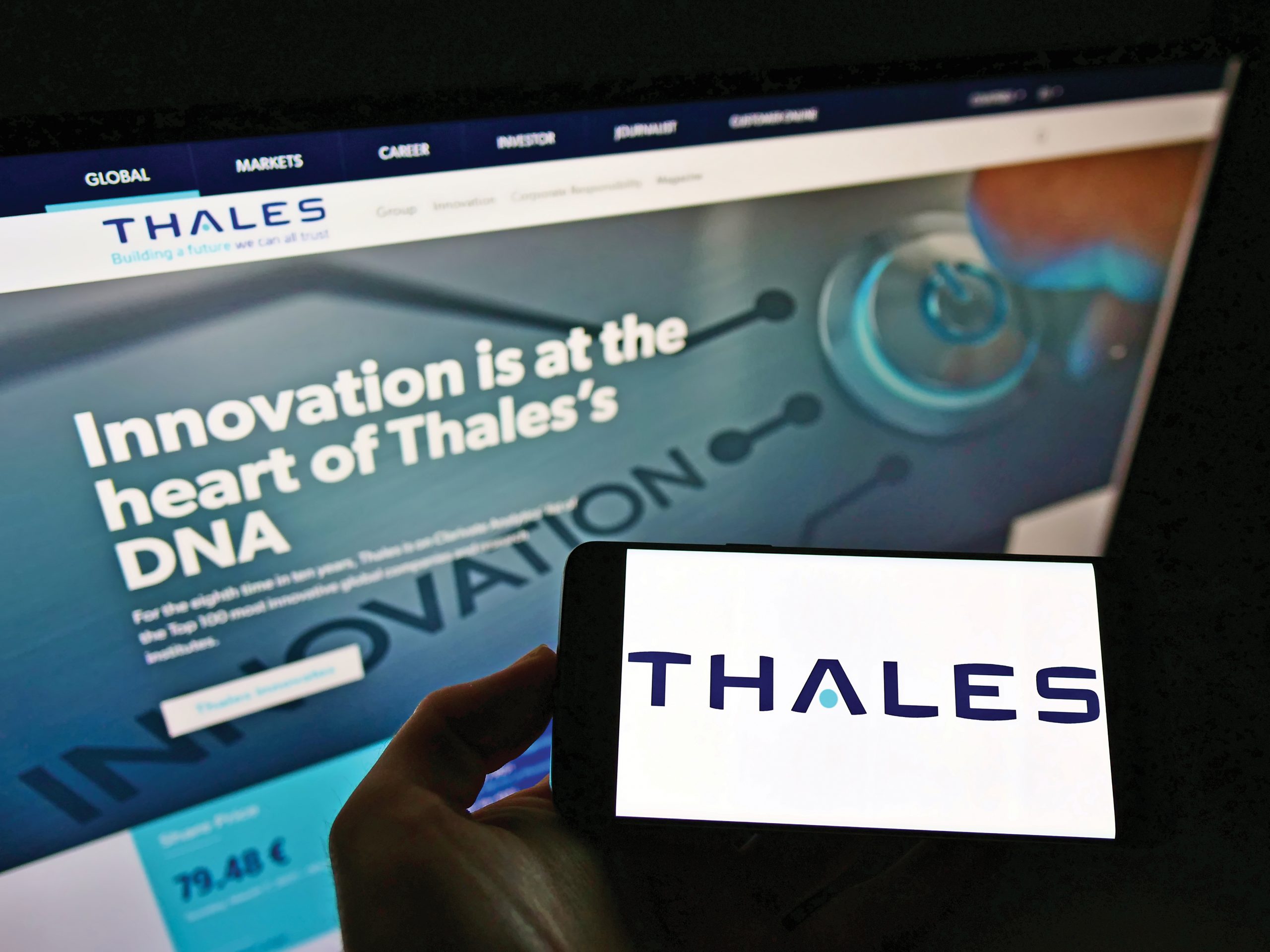
Can we have an overview about Thales in general, its activities in the region and the UAE in particular. What are your most prominent products, services, and areas of activities in the UAE?
Thales is a trusted partner embedded in the local ecosystems of the UAE and beyond, enabling customers to master critical decisive moments with full operational sovereignty. As a long-term partner of the UAE armed forces, we have developed our local presence in the country through numerous joint ventures and partnerships. This has allowed us to expand the local footprint, to be able to adapt and meet customer needs and, crucially, to develop talents through the means of high-level professional and academic training programs, and ultimately build a future we can all trust.
Thales’ vision in the UAE is “Industry, Innovation and Education”. Our objective is to bring security, safety and growth, whilst preserving state sovereignty, providing sustainable economic development, and fostering local talent. Thales has a long-lasting relationship with the UAE, providing cybersecurity, defense, space, aerospace and transportation solutions to the country.
Over the last year, we are accelerating the ramp up of operations, and have celebrated significant milestones in regards to centers of excellences announced during last IDEX 2021.This includes the inauguration of our radar centre of excellence in partnership with Tawazun, with whom we also work with on an internship program, Sustain and Enhance Emiratisation in Defence and Security (SEEDS). We believe that empowering local youth is vital to developing technologies that can be integrated into the industrial ecosystem, creating value and economic impact. To further support the country’s growth in industry, innovation and education, we have collaborated with DESC, EDGE, and Emirates on Aviation XLAB.
Through our work with Hub 71, we bring together expertise from the industrial world and the dynamism of Abu Dhabi’s global technology ecosystem, with local knowledge from universities to develop new technologies. We are closely collaborating with Mohamed Bin Zayed University, Khalifa University for the Cybersecurity Hub, UAE Ministry of Higher Education and Scientific Research to form CERT, Sorbonne University of Abu Dhabi for the creation of an industrial chair in the field of AI, and Mohamed Bin Zayed University of Artificial Intelligence (MBZUAI) to further develop strength in AI.
What are the most important projects that the company has implemented in the UAE so far with the government or the private sector?
As innovation is a key pillar of the UAE’s strategy, Thales brings its expertise in the field of defense, digital technologies and security to the region. The main products include electronic systems for various types of platforms across all domains (Land, Sea, Air, Space), such as sonars, radars, sensors, optronics, communication systems and other innovative embedded electronics, as well as tailor-made solutions for training, services and integration.
As technologies are transforming daily lives through connectivity, mobility, digitalisation, data-driven services, Thales has a significant role to play in supporting the country in their civilian and defense infrastructure capabilities.
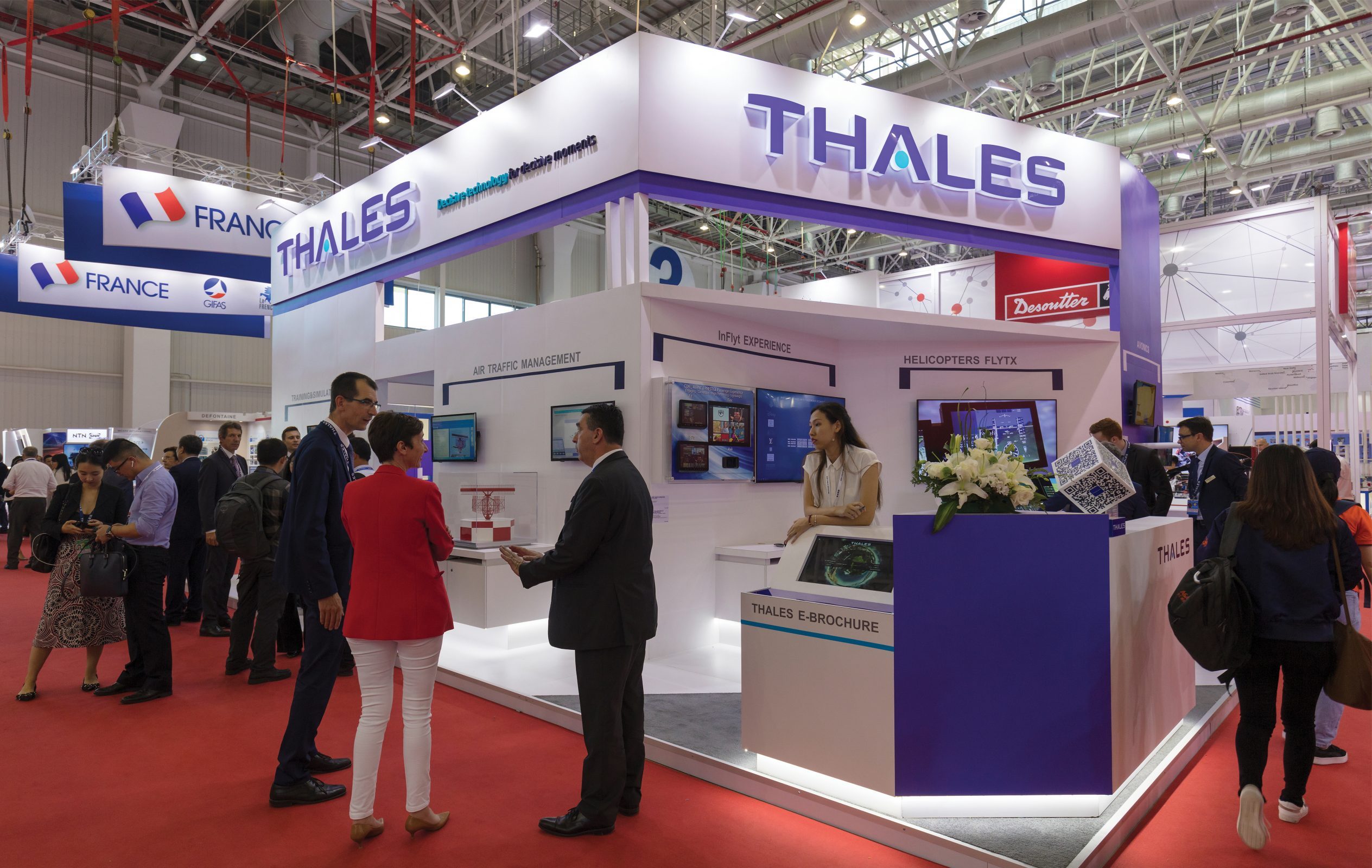
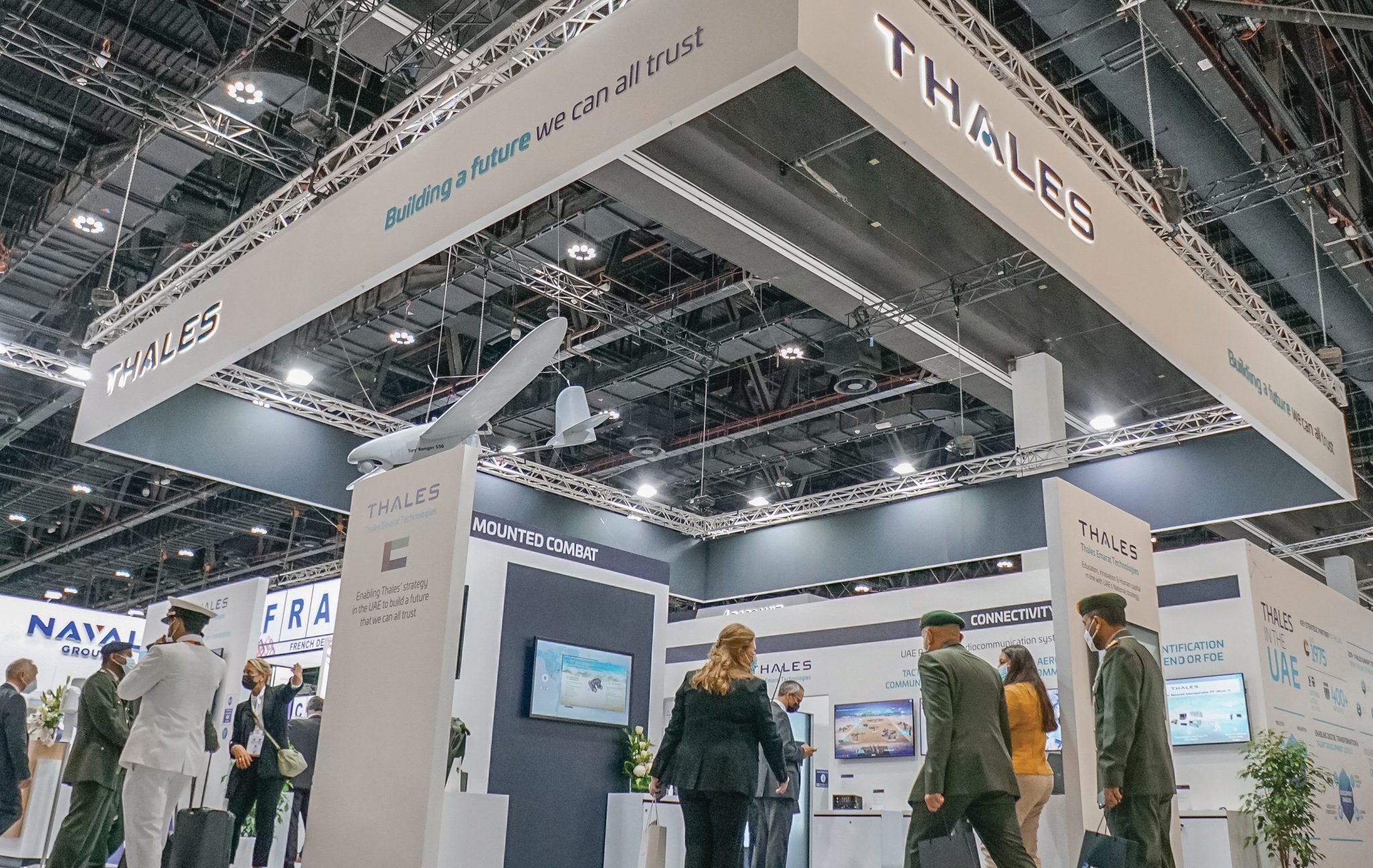
The Tawazun Economic Program is one of the key drivers for the defence and security sector. In partnership with them, we have created Thales Emarat Technologies (TET) the vector of our strategy integrated in the local Emirati industrial ecosystem to create sustainable value and economic impact. Our goal is to empower the nation with unique and sovereign technology capabilities in line with the national vision. By leveraging Thales’s unique technological portfolio to benefit the UAE, TET fosters the diversification of the local economy.
Human capital is a scarce recourse, and TET is committed to investing in it by hiring and training highly skilled local workforce. To attract and retain young national talent, we work closely with educational bodies, colleges and universities. This training model will have a positive knock-on effect on the country’s local talent pool, supporting the future of the UAE economy and sovereignty.
The TET industry focus is on critical systems such as radar, radio communications and a variety of defence aerospace technologies. The company enables the localisation of specific maintenance and support operations, improving response time and flexibility in customer care.
On the civil front, Thales solutions facilitate the Dubai Metro, the longest driverless metro network in the world. The red and the green lines, as well as the Route 2020 are equipped with the SellTrac® signalling solution.
How do you rate your recent experience and participation in IDEX 2021, and did it meet your expectations?
This was our sixth year at IDEX and NAVDEX, and the show was bigger and better than before. IDEX and NAVDEX are crucial events for the defence sector as they are the only international defence exhibitions and conferences in the MENA region that demonstrate the latest technology across land, sea and air. The leaders of the nation have displayed incredible strength in the face of a pandemic which took the world by storm. The UAE’s strategy of taking early steps to contain the virus, including rigorous testing and contact tracing of cases, has been incredibly effective and praise-worthy. The wise leadership’s efforts in managing the pandemic give us full confidence that the exhibition will be a safe space for all participants.
As a global leader in this defence and high technologies, and as a long-term partner of the UAE armed forces, we were as present as ever. Thales’s participation gave us a chance to showcase our strategy of industry, education and innovation, in the country, and is testament to our support of the UAE. We also used this incredible opportunity to inaugurate the Radar Center of Excellence in partnership with Tawazun.
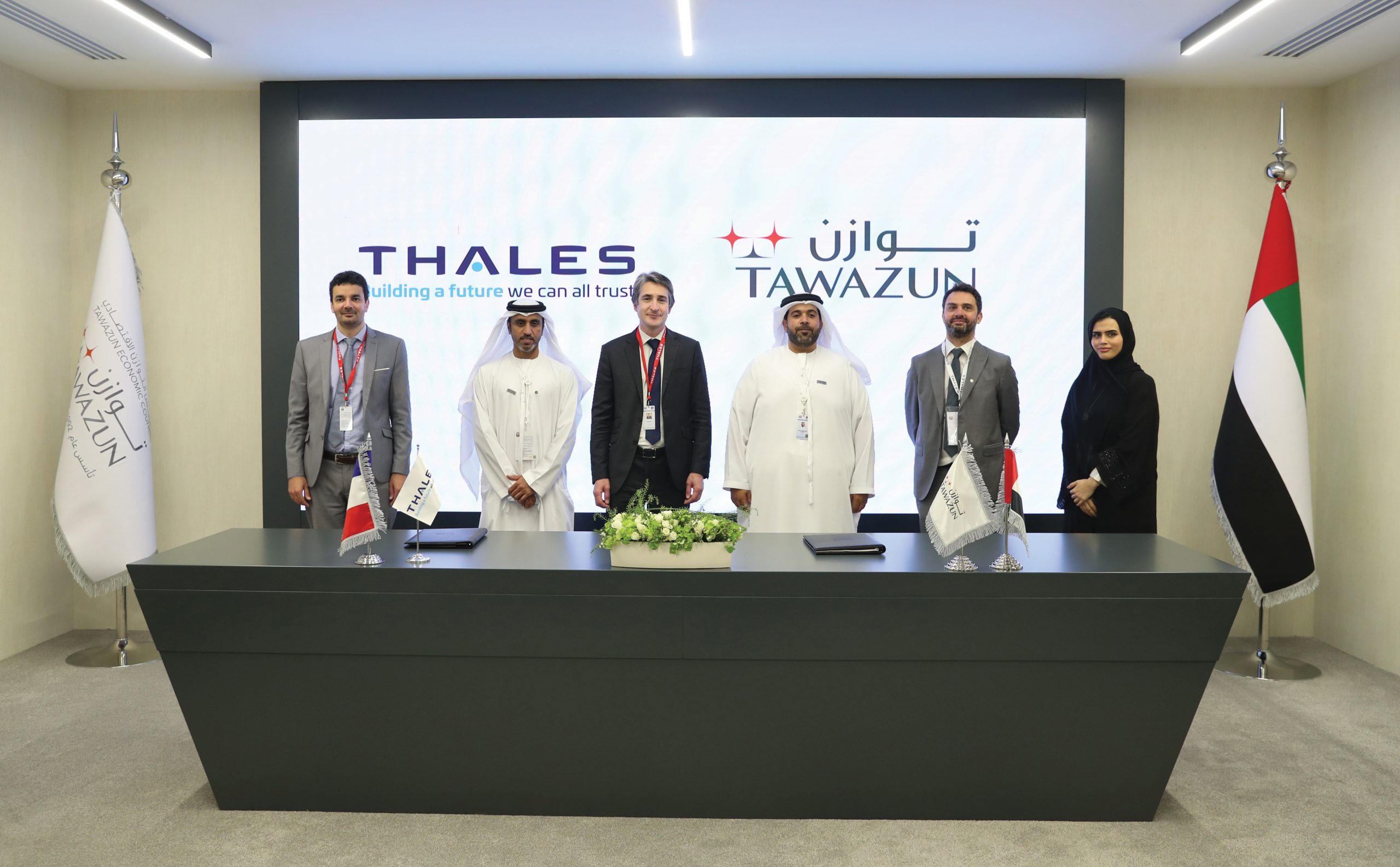
What are the most needed/required defence solutions and technologies in the Middle East and Gulf region?
Digital technologies are key to maintaining tactical superiority and strategic independence. Before we realize it, military battles will be fought by a single unified combat machine composed of soldiers, vehicles, and sensors, all operating in complete synergy and in real time. Battlefield decision-making time will be reduced to seconds, giving a critical on-the-ground tactical advantage over the adversary. It’s called “collaborative combat” and it’s based on advanced technologies. Warfare has always been collaborative, but, in the past, military information was simply exchanged from one unit to another. This means lost time. By networking all the fighting vehicles and the sensors they carry, military personnel can share information immediately, reducing the process of detecting and neutralizing a threat to a matter of seconds.
With shorter response times, greater precision and optimised firepower, collaborative combat will combine new “vetronics” (vehicle and electronics) capabilities with the power of software radio to give armed forces the edge — even when the adversary is numerically superior and has better knowledge of the terrain. Collaborative combat means going from commands based on reasoning to commands based on reflexes that rely on options analysed by artificial intelligence.
The increasing complexity of the landscape means commanders need the clearest picture possible – and they need to know all their options. So, the next generation of command and control systems is being built around ergonomic human-computer interfaces to accelerate decision making. Rather than simply reacting to attacks, commanders will be able to anticipate them instead.
The Internet of Things will connect all the players on the battlefield. Big Data will gather data from battlefield action, analyze it, and then store it in the Cloud. Cyber Protection will provide the cyber solutions such as the sensors and firewalls necessary to detect abnormalities and to store data safely. Artificial Intelligence will provide algorithms for an automatic merger of all data to support the decision making process.
Industry 4.0 technologies make collaborative combat possible through sharing and applying vast amounts of information, instantaneously making sense of what they mean, allow to anticipate and offering strategic choices for engagement. Artificial Intelligence, Data Analytics, Connectivity and Cybersecurity are making it all possible; taken together, they make up an ‘Internet of air combat’ where critical information can be shared and applied continuously.
By: Razi Ezzeddine Al-Hedmi


